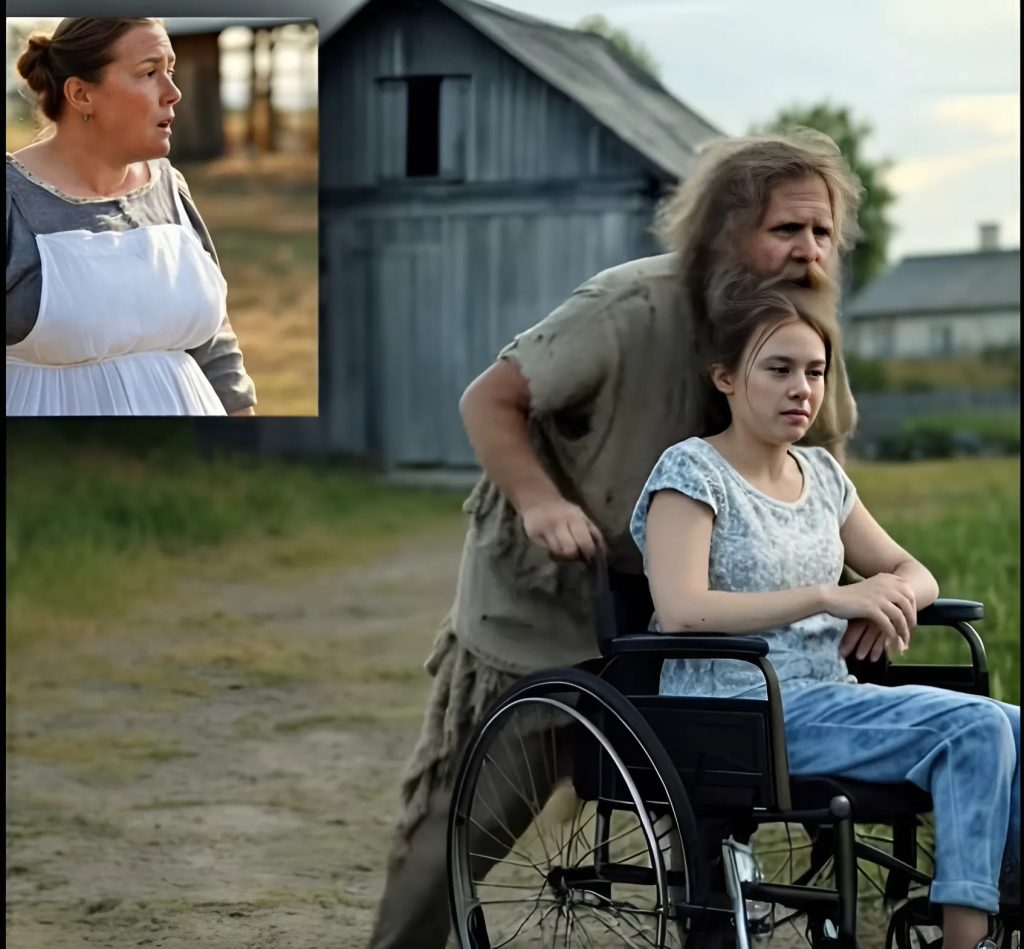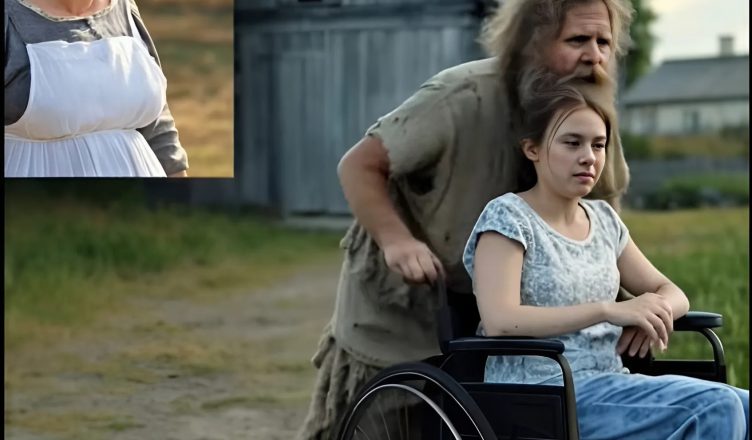Tucked away in a forgotten corner of the countryside, the village of Lesnaya was a place where news traveled slowly, but emotions ran deep. The kind of place where everyone knew everyone — and everything. And nothing much ever happened. Until it did.
Anna had been a milkmaid for over two decades. Her days began before the sunrise and ended long after the cows settled. She lived alone with her daughter, Ksyusha, who hadn’t walked since the age of six. A car accident had taken her ability to stand. Her husband, unable to carry the weight of a disabled child, had vanished soon after. Life hardened Anna. But never broke her.
Ksyusha was quiet, intelligent, and lonely. The wheelchair had become both her cage and her world. Most days, she sat by the gate with a book, watching life go by, unnoticed.
Until a stranger appeared.
He came out of nowhere. Thin, wrapped in a worn coat, face shadowed beneath a tattered hat. He walked slowly, limping slightly, and said very little. The village called him “the drifter.” Rumors said he had once been a soldier. Others claimed he was a runaway priest. No one knew for sure.
He lived in an abandoned shack near the forest’s edge. Kept to himself. Until one day, a passerby saw him sitting beside Ksyusha, carving something out of wood.
At first, Anna was furious. But Ksyusha looked… happy. That was rare. He came again the next day. And the next. Sometimes he brought her feathers, or wildflowers. Sometimes he just sat beside her in silence.
Then one morning, Anna heard whispers.

A neighbor mentioned seeing the man pushing Ksyusha’s wheelchair toward the abandoned bathhouse near the river. It had been boarded up for years — rotting wood, shattered windows, the ghost of steam long gone. Why there? Why her?
Anna didn’t wait. She ran. Through the frost, through the panic, through the noise rising in her chest. Her hands trembled as she reached the crumbling door. She kicked it open.
And froze.
Inside, candlelight flickered across the stone walls.
The air was thick with warmth. The bath had been filled — steam rising gently. Ksyusha lay wrapped in a fresh towel, her hair wet, eyes closed in peace. Beside her, the man knelt silently, gently rinsing her legs with warm water. His movements were deliberate, almost sacred. A towel across his shoulder, a small wooden comb beside the basin.
He didn’t look up. He didn’t speak. He simply continued, with a reverence that silenced everything.
There was no shame. No fear. Only a deep, aching care that needed no explanation.
Anna, breathless and shaking, sank to her knees.
“I wanted her to feel human again,” he said quietly. “To remember what it’s like to be touched with kindness.”
He didn’t ask for forgiveness. He didn’t justify. He just left. That same night. And was never seen again.
Days later, a package arrived.
Inside: a brand-new wheelchair with motorized controls. And a small, hand-carved star, painted with the words: «You are still light.»
No return address.
From that day on, Ksyusha changed. She started drawing again. Talking more. Asking to be wheeled to the river. She began to dream, not just about standing — but about flying.
“Some people don’t come to stay,” Anna told a local reporter. “They come to remind us that even the forgotten deserve a moment of warmth.”
